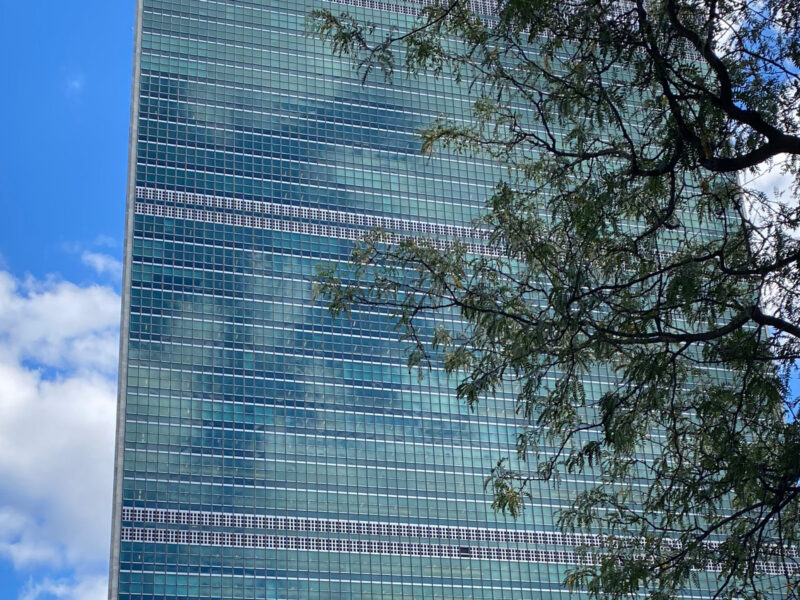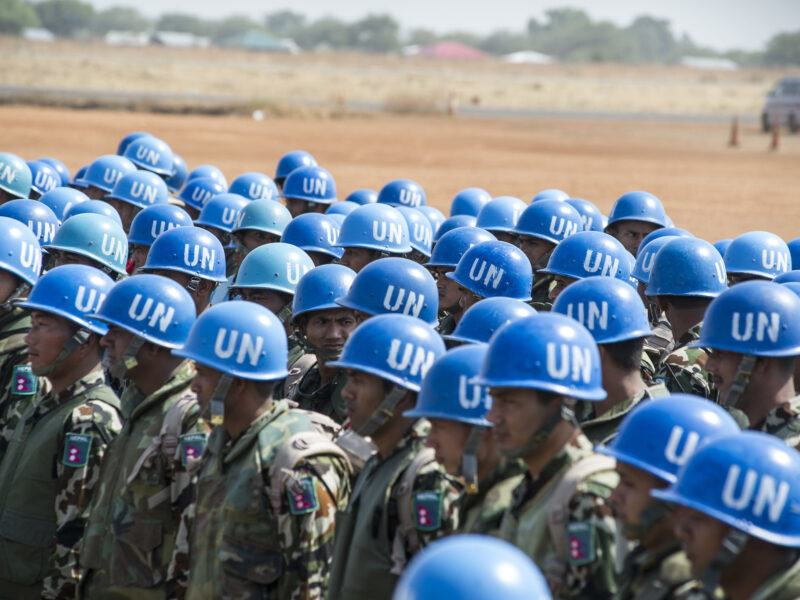The Sustainable Development Goals and the Rule of Law – Confirming the Inevitable?
September 2015 was a big month in terms of reshaping the development discourse and sharpening the focus of the much maligned Millennium Development Goals (MDGs). And not a moment too soon. What we got were 17 Sustainable Development Goals (SDGs) that are intended to pave the way for more measurable outcomes that are grounded in specific objectives related to security, human rights, governance and the rule of law. The SDGs are effectively about unambiguous objectives rather than overall commitments, and the centrality of the rule of law and governance-related goals in the new agenda has shifted the goalposts significantly in favour of a more robust rights-based dimension for development. To the fore are issues such as legal identity for all, access to justice, personal security as a fundamental state function and human right as well as ensuring land rights, which is implicit in a number of goals concerning discrimination, inequality and responsive institutions.
Yet, the rule of law does not only refer to criminal justice, as some observers are too quick to conclude; it is a principle of governance that asserts a mutually reinforcing relationship between the rule of law, human rights and democracy and creates a space of freedom where people can develop and be protected from disenfranchisement.
The rule of law is also important as a goal in itself, yet it is how it shapes societal norms and expectations of citizens on the state and guarantees respect for fundamental human rights, that has ensured its prominence in the 2030 Agenda with the 17 SDGs. Essentially, it is no longer seen as a complement to ongoing efforts at building peaceful and inclusive societies; it is the cornerstone on which the implementation of the SDGs rests. Already in the report of the High Level Panel of Eminent Persons on the post-2015 Agenda, the rule of law was defined as an enabler of sustainable development representing a significant step up from the MDGs. The latter were not entrenched in human rights standards, nor were they as inclusive as the new SDGs.
The emphasis on the interaction between the state and the citizen is front and centre of the need to make the SDGs inclusive and participatory, while at the same time underscoring the long overdue conviction that state institutions can no longer operate in a vacuum and are obliged to adhere to their role as duty bearers. This state-citizen lacuna is omnipresent in seven SDG targets that explicitly refer to persons with disabilities, six targets focusing on people in vulnerable situations with two referring specifically to non-discrimination.
From the very first, it is possible to look beyond SDG 16 and its primary focus on accountable institutions, peaceful societies and promoting the rule of law at the international and national levels. Throughout the other goals, the principles of the rule of law are conspicuous by their presence and explicitly referred to as drivers for sustainable development. Bergling and Jin give a detailed insider perspective into how the rule of law permeates several of the SDGs and its importance for member states. For instance, ensuring equal opportunity and reducing inequalities of outcome, including by eliminating discriminatory laws, policies and practices and promoting appropriate legislation (Goal 10); ensuring access for all to adequate, safe and affordable housing and basic services (Goal 11), which intersects with Goal 1 that all men and women, in particular the poor and the vulnerable, have equal rights to economic resources, as well as access to basic services, ownership and control over land and other forms of property, inheritance and natural resources. Such challenges are consistent across the board in relation to conflict and post-conflict countries, and progress on these targets often represent the first concrete signs of institutional life following a peace agreement or a transition from authoritarian rule. Most importantly, when attention is paid to these essential rights, there are tangible effects on the lives of the people that hope to benefit from this revitalised agenda.
As the UN Deputy Secretary General Jan Eliasson stated already in 2013, “delivering justice through the rule of law is at the foundation of all our work at the UN. The rule of law is fundamental to maintaining a lasting peace. It is of central importance to fair and sustainable development, and it makes rights enforceable in practice.” Together with the forthcoming World Development Report: Governance and the Law to be published in 2017 as well as the UN Secretary General’s report, A Life of Dignity for All there is a certain inevitability that lasting peace and sustainable development cannot be fully realised without respect for human rights and the rule of law.
av Shane Quinn








